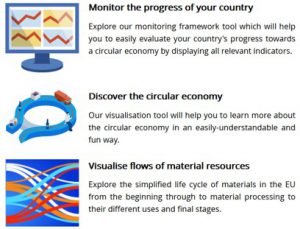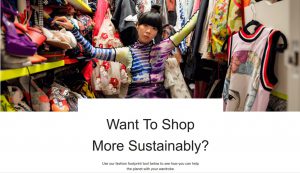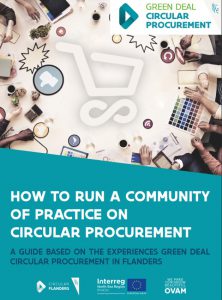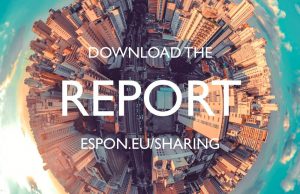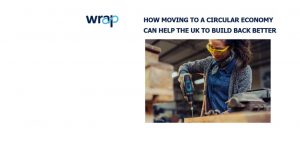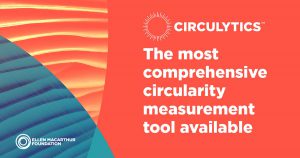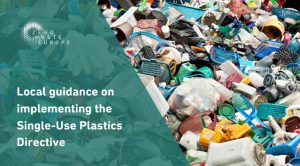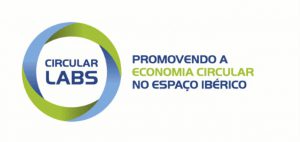The tools here presented are available for all regional stakeholders wishing to deepen
their knowledge and integrate the principles of Circular Economy in the context of their organisations and their daily lives.
Eurostat – Circular Economy
In recent years, Circular Economy has become instrumental in supporting the EU’s commitments on sustainability. Eurostat’s role is to provide easy access to the relevant data for citizens and policy makers in order to support the monitoring progress. Monitoring allows the European Commission and other policy makers to keep track of the progress made and assess the effectiveness of their actions. It also provides a clear signal to economic actors such as business and consumers on ongoing trends. To access information on indicators, tables, publications and other interesting links, please visit: https://ec.europa.eu/eurostat/web/circular-economy.
published October 9th
Fashion Footprint Tool
Online luxury fashion platform Farfetch has launched an online fashion footprint tool to help consumers understand how to track the environmental impact of their purchasing decisions and how their pre-owned and conscious fashion choices can impact the planet. The tool is available on its website and will allow consumers, when choosing to make a purchase, to consider which materials can reduce the environmental impact of their purchase, and to see the environmental savings of incorporating pre-owned purchases into their wardrobes. To know more about this tool, please visit: https://www.farfetch.com/pt/fashionfootprinttool.
published September 9th
White Paper – How to Run a Community of Practice on Circular Procurement
Circular Flanders, powered by OVAM, has announced the publication of a new White Paper. With this whitepaper Circular Flanders aims at sharing their experiences from the Flemish Green Deal on Circular Procurement with everyone who is setting up a community of practice on circular procurement. To download this publication, please visit: https://aankopen.vlaanderen-circulair.be/en.
published September 4th
SHARING Research Report
VVA Economics & Policy, together with ÖIR and shareNL, have published a final report, commissioned by ESPON, on the “Urban Circular Collaborative Economy”, which is a concept that brings together the circular and the collaborative economy. This study provides a template for local and regional authorities trying to understand the impacts of circular collaborative economy initiatives in their regions. In addition to the final report and six case study reports, the study has also developed a practical guide primarily targeted to regional and local policy makers on how to make use of the circular collaborative economy initiatives present in their territory. To know more information, please visit: https://www.collaborativexcircular.com/.
published July 20th
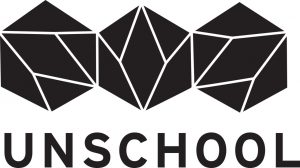
Unschool of Disruptive Design – Free Resources
The Unschool of Disruptive Design has published a set of tools that are now available with free access that aim to support and empower different entities in their change process, by promoting social innovation and sustainability. To access these resources, visit https://online.unschools.co/collections?category=free-content.
published July 14th
Report “How moving to a Circular Economy can help the UK to build back better”
WRAP (Waste and Resources Action Programme) believes that adopting a more circular economy could help the UK recover from the economic impact of the COVID-19 pandemic. In a new report, they argue that that moving to a more circular economy should form an essential element of the UK’s recovery plan, as greater circularity has the potential to deliver increased growth, net jobs, higher resilience and stronger environmental sustainability. The report presents six recommendations for action to become more circular, more resilient, and more sustainable, that can help other regions and countries with similar ambitions. For more information, please visit: https://www.wrap.org.uk/buildbackbetter.
published June 29th
Circulytics – measuring circularity
Circulytics is a circularity measurement tool developed by Ellen MacArthur Foundation that enables companies, regardless of industry, complexity, and size, to measure circularity across their entire operation and identify opportunities to adopt or further embed circular practices. To register your company and submit the required qualitative and quantitative data in the survey platform, in order to receive your company scorecard that features a comprehensive breakdown of the results, please visit https://www.ellenmacarthurfoundation.org/resources/apply/circulytics-measuring-circularity.
published June 29th
Local guidance on implementing the Single-Use Plastics Directive
Together with the Rethink Plastic alliance, Zero Waste Europe has developed a guide for local municipalities and communities looking for support on implementing the EU’s SUP Directive. This guide aims to provide concrete examples and advice on the different actions cities and municipalities can implement to reduce plastic pollution, simultaneously achieving the targets set out in the Directive. More information here: https://zerowastecities.eu/local-guidance-on-implementing-the-sup-directive/.
published June 8th
Circular Economy self-assessment tool
The project partners of INTERREG POCTEP CircularLabs developed a self-assessment tool that allows assessing the degree of implementation of the circular economy in companies and institutions. After the self-assessment study, the tool offers an initial diagnosis, which allows comparing with the average of the different sectors, as well as following the results of subsequent studies on how to monitor the evolution of the circular economy in activities. To try this free tool, click here.
published June 8th
The Sustainable Fashion Glossary
The Sustainable Fashion Glossary is the product of a partnership with Centre for Sustainable Fashion (CSF) at London College of Fashion, UAL with input from Vogue Editors-in-Chief and reviewed by a network of academics and sustainability researchers from around the world. This tool is designed to strengthen and develop sustainability literacy by providing guidance on key sustainability terms and emerging topics. To learn more, visit this link: https://www.condenast.com/glossary/glossary-introduction.
published May 20th
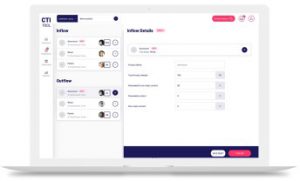
Circular Transition Indicators (CTI)
The World Business Council for Sustainable Development (WBCSD), together with 26 of its members have jointly developed a universal and consistent framework to measure circularity. The Circular Transition Indicators (CTI) is a simple, objective and quantitative framework that can be applied to businesses of all industries, sizes, value chain positions and geographies, available at WBCSD.
published May 7th
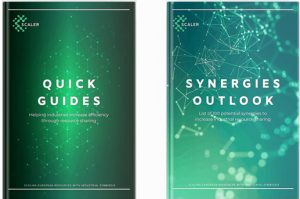
SCALER Project – Guides & Outlooks
The SCALER Project, funded by Horizon 2020, published two quick guides for industry. One, entitled “Quick Guides – Helping industries increase efficiency through resource sharing” offers insights into how businesses can start industrial resource synergies with other companies to minimise their waste and create more value from their production. The other one is a “Synergies Outlook – List of 100 potential synergies to increase industrial resource sharing”, providing a list of 100 promising synergies that could be implemented in the European process industry, helping companies identify potential waste exchange with other firms. You can download them here: https://www.scalerproject.eu/resources/guides-outlooks.
published February 28th

Circular City Funding Guide
The Circular Cities Funding Guide is now available for consultation, with information and supporting tools for the funding of circular projects and activities in an urban context, developed under the ‘Urban Agenda for the Circular Economy’ partnership. More information available at
https://www.circularcityfundingguide.eu/.
published February 12th

